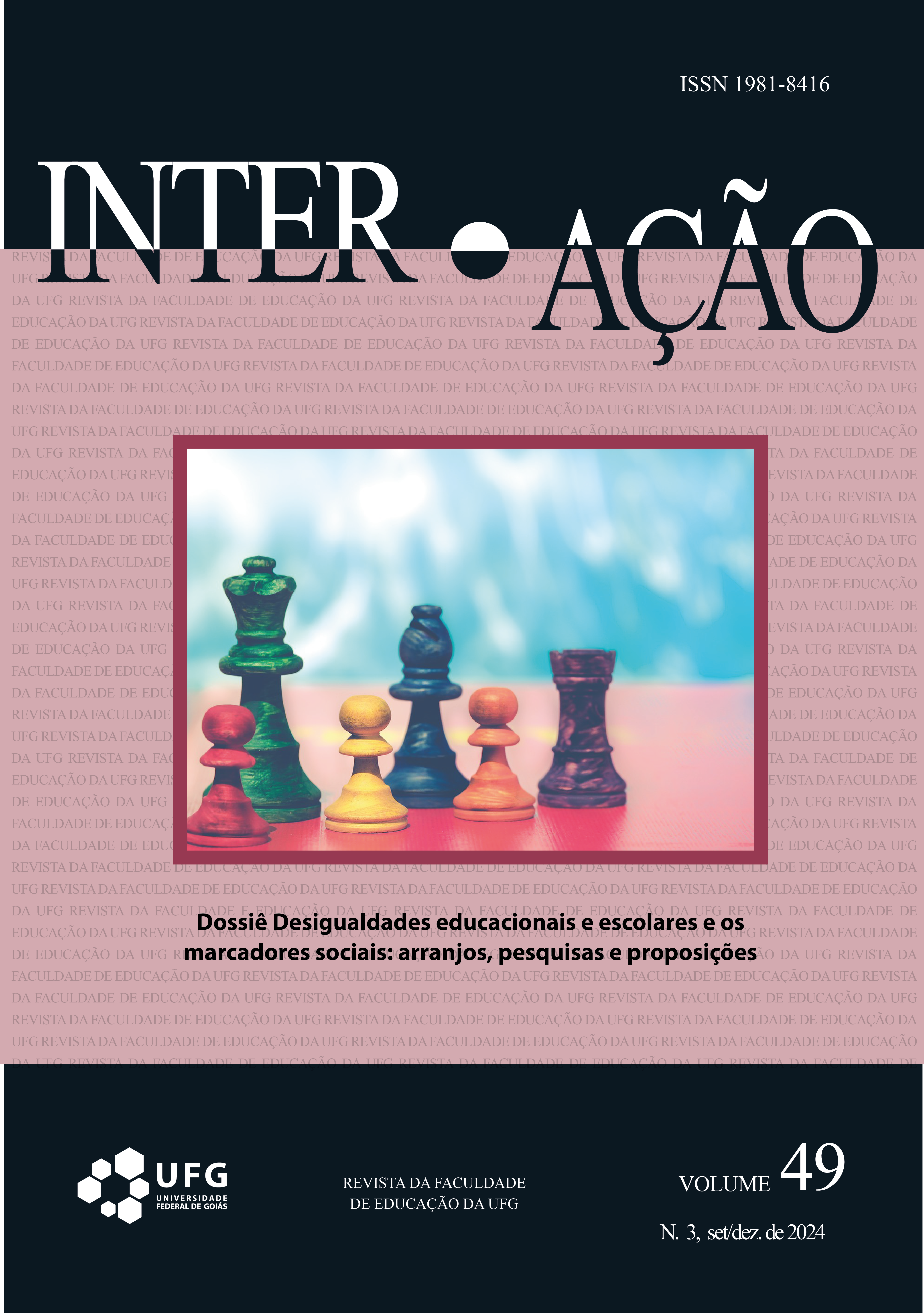FATO OU FAKE (?): PROBLEMATIZAÇÕES PARA PENSARMOS A EDUCAÇÃO EM TEMPOS DE INFODEMIA
PROBLÉMATISATIONS POUR PENSER L'ÉDUCATION CONTEMPORAINE
DOI:
https://doi.org/10.5216/ia.v49i3.78746Palavras-chave:
Informação, Desinformação, Fake News, ConhecimentoResumo
Esta é uma escrita/convite, especialmente para aqueles/as que estão envolvidos com a Educação. Nela apresentamos algumas análises teóricas a respeito de práticas evidenciadas na Cultura Digital, decorrentes de estudos cartográficos de Pesquisas de pós-doutorado e doutorado em andamento, que buscaram e ainda buscam refletir sobre os modos como temos apreendido as coisas do mundo contemporâneo. Procuramos trazer à cena alguns conceitos de teóricos da Cultura Digital, da Pedagogia de Multiletramentos e da Cultura Visual que estão citados ao longo do texto, com o objetivo de dar a ver ao leitor questões que possam contribuir para uma docência que restitua às nossas crianças e jovens o “Direito a Olhar”. Para tanto, utilizamos, também, como fonte, artigos científicos e autores clássicos para que, ao serem colocados em diálogo, propiciem uma experiência de leitura que promova contravisualidades às visualidades hegemônicas do nosso tempo.
Downloads
Referências
ALLCOTT, H., GENTZKOW, M. Social Media and Fake News in the 2016Election.Journal of Economic Perspective, v.31, n.2, p.211–236, 2017
BENJAMIN, W. Experiência e Pobreza. In: Magia e Técnica, Arte e Política. São Paulo: Brasiliense, 1987.
BRISOLA, A.; BEZERRA, A. C. Desinformação e circulação de “Fake News”: distinções, diagnóstico e reação. XIX Encontro Nacional de Pesquisa em Ciência da Informação – ENANCIB, 2018.
DELEUZE, G.; GUATTARI, F. Mil platôs - capitalismo e esquizofrenia, vol. 1. Tradução de Aurélio Guerra Neto e Célia Pinto Costa. Rio de Janeiro: Ed. 34, 1995.
EWALD, F. In: DELEUZE, G.; GUATTARI, F. Mil platôs - capitalismo e esquizofrenia, vol. 1. Tradução de Aurélio Guerra Neto e Célia Pinto Costa. Rio de Janeiro: Ed. 34, 1995. (Orelha do livro).
FOUCAULT, M. História da sexualidade 2: o uso dos prazeres.5ed.São Paulo: Paz e Terra, 2014.
FRANCESCO, N. N.; LEONE, S. D. Educação midiática contra “Fake News”. Revista Científica UMC, Mogi das Cruzes, v.5, n.1, p.1-15, fev. 2020.
GALHARDI, C. P.; FREIRE, N.P.; MINAYO, M.C.S.; FAGUNDES, M.C.M. Fato ou Fake? Uma análise da desinformação frente à pandemia da Covid-19 no Brasil. Ciência & Saúde Coletiva, p. 4201-4210, 2020.
GARCIA, L. P.; DUARTE, E.Infodemia: excesso de quantidade em detrimento da qualidade das informações sobre a COVID-19. Epidemiologia e Serviços de Saúde. Brasília, v.29, n.4, p.1-4, 2020.
GUATTARI, F.; ROLNIK, S. Micropolítica: cartografias do desejo. Rio de Janeiro: Vozes, 1986.
HEGEL, F. Jürgen – Eckardt Pleines. Pernambuco: Massangana, 2010.
LARROSA, J. B. Notas sobre a experiência e o saber de experiência. Revista Brasileira de Educação. Rio de Janeiro, v. 19, p.20-29, 2002.
MIRZOEFF, N. O direito a olhar. ETD - Educação Temática Digital, Campinas, SP, v. 18, n. 4, p. 745–768, 2016.
PINHEIRO, M. M. K.; BRITO, V. de P. Em busca do significado da desinformação. Revista de Ciência da Informação, v.15, n.6, p.1-7, 2014.
Publicado
Como Citar
Edição
Seção
Licença
Copyright (c) 2024 Alessandro Camara de Souza, Dagmar de Mello e Silva , Leiliane Domingues da Silva

Este trabalho está licenciado sob uma licença Creative Commons Attribution-NonCommercial 4.0 International License.
A Inter-Ação utiliza como base para transferência de direitos a licença Creative Commons Attribution 4.0 para periódicos de acesso aberto (Open Archives Iniciative - OAI). Por acesso aberto entende-se a disponibilização gratuita na Internet, para que os usuários possam ler, baixar, copiar, distribuir, imprimir, pesquisar ou referenciar o texto integral dos documentos, processá-los para indexação, utilizá-los como dados de entrada de programas para softwares, ou usá-los para qualquer outro propósito legal, sem barreira financeira, legal ou técnica.
Autores que publicam neste periódico concordam com os seguintes termos:
1) Autores mantém os direitos autorais e concedem à revista o direito de primeira publicação, com o trabalho simultaneamente licenciado sob a Licença Creative Commons Attribution que permite o compartilhamento do trabalho com reconhecimento da autoria e publicação inicial nesta revista.
2) Autores têm autorização para assumir contratos adicionais separadamente, para distribuição não-exclusiva da versão do trabalho publicada nesta revista (ex.: publicar em repositório institucional ou como capítulo de livro), com reconhecimento de autoria e publicação inicial nesta revista.
3) Autores têm permissão e são estimulados a publicar e distribuir seu trabalho online (ex.: em repositórios institucionais ou na sua página pessoal) a qualquer ponto antes ou durante o processo editorial, já que isso pode gerar alterações produtivas, bem como aumentar o impacto e a citação do trabalho publicado.















